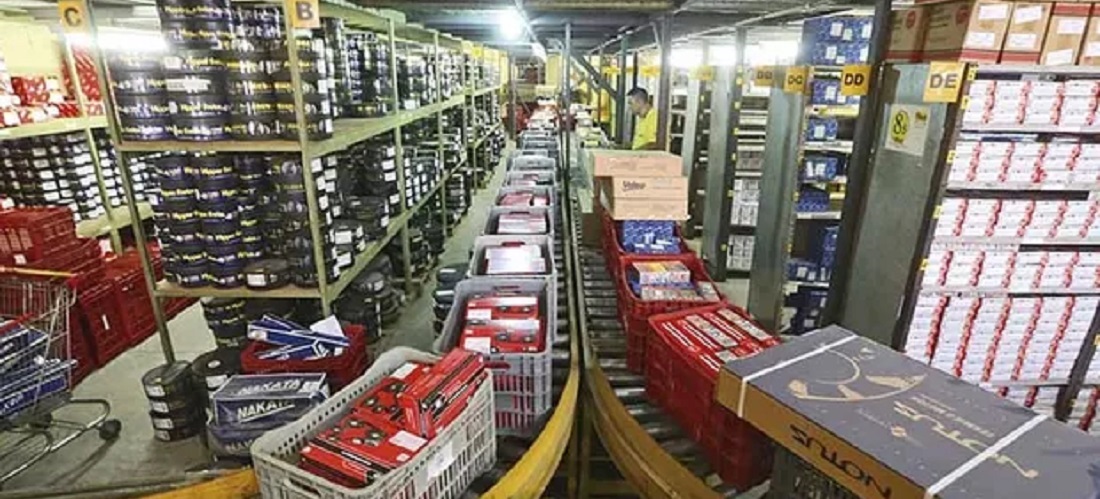
Auto parts industry ask for increased strictness in the inspection of imported items in Brazil
Jul, 05, 2024 Posted by Gabriel MalheirosWeek 202426
Automakers in Brazil want foreign electric and hybrid cars to pay the highest possible rate in Import Taxes. Representatives from the auto parts industry presented their concerns to Vice President and Minister of Development, Industry, Commerce, and Services, Geraldo Alckmin. Business leaders advocate for the creation of legal mechanisms to prevent parts produced in Brazil from entering under the ex-tariff regime, which allows reduced taxes.
The ex-tariff regime temporarily reduces Import Tax for products with no domestic equivalent. However, according to Claudio Sahad, president of the National Autoparts Union (Sindipeças), there is currently no way to verify if all items in an imported set of parts are unavailable domestically. Sindipeças has offered government support to address this issue.
Sahad noted that the number of items in this sector’s ex-tariff list increased from 100 in 2010 to 3,000 in 2021, and now stands at 8,500. The sector also advocates for setting a specific timespan in which products are allowed to remain in the ex-tariff regime to encourage industry development and boost production. Sahad emphasized that there is hope that Chinese manufacturers, like BYD and GWM, who plan to bring their factories to Brazil, will eventually nationalize production. Initially, these vehicles will be assembled using parts manufactured in China. “We can attract battery manufacturers, especially for hybrids that will be manufactured in Brazil,” he said.
On July 3rd afternoon, Alckmin invited the MDIC team to a meeting with Sindipeças. Besides discussing parts-related issues, the union, representing over 500 companies, formally requested a swift increase in the number of imported goods paying the Import Tax. It also asked the government to consider raising the tax rate further. “We are in a new global context; Europe increased the tax on imported electric cars by 48%,” Sahad said.
Since January, a gradual increase in Import Tax for these vehicles has been in effect. This month, the rate for fully electric vehicles rose to 18% and for hybrids to 20%. The hike will continue until July 2026, when the tax will reach 35% for all vehicles from countries without a free trade agreement with Brazil, regardless of power type.
On July 4th, automaker representatives revisited the issue. The defense of mechanisms to limit Chinese imports was the main discussion topic brought about by the National Association of Motor Vehicle Manufacturers (Anfavea) during its monthly press conference. To show unity, Anfavea’s management invited Ciro Possobom, president of Volkswagen in Brazil, to share his views.
“If you want to sell cars here, come and play here,” Possobom stated, standing in front of a football field image projected in the Anfavea meeting room. He noted that the sector estimates 450,000 vehicles will be imported in 2024. “That’s a lot,” he emphasized.
Possobom advocated for incentives to boost domestic production of items currently imported. He also pointed out that imports are on the rise while exports are falling. In the first half of the year, foreign vehicle sales totaled 165,300 units, a 28.3% drop compared to the first half of 2023.
“We have to be very careful,” Possobom cautioned. “The market is growing, but production stagnated.” From January to June, 1.14 million vehicles were licensed, a 14.6% increase compared to the same period in 2023. June alone saw a sales growth of 13.1% over the same period, with 214,300 units. Average daily sales, at 10,700 units, returned to pre-pandemic levels.
Conversely, year-to-date production in the first six months of the year – 1.12 million vehicles – represented a modest increase of 0.5% compared to the same period in 2023. However, June saw a significant production uptick of 11.6%, with 211,000 vehicles produced.
Anfavea President Márcio de Lima Leite described the surge in imports, which reached 197,600 units in the first half of the year, as an “unrestrained increase.” He noted that 78% of these imports came from China, with Chinese brands’ share in the Brazilian market rising from 7% to 26% in just one year.
Executives also underscored the loss of competitiveness in Latin America, where Asian manufacturers often enter markets without paying taxes. According to Leite, half of the vehicles imported by Latin American countries come from Asia.
Leite presented a map showing the decline in Brazil’s share of vehicle sales in neighboring countries. Over the past year, Brazil’s share dropped from 8.9% to 5.3% in Mexico and from 22.6% to 17% in Colombia. “We risk seeing factory closures in the second half of the year,” Leite warned.
On the commercial vehicle side, Iveco President Marcio Querichelli added his voice to the chorus. He noted that two-thirds of the trucks sold in markets like Chile, Peru, Colombia, and Ecuador are of Asian origin.
Anfavea used the meeting to revise its projections. Initially, the industry association anticipated a 6.1% growth in the domestic market for 2024, totaling 2.45 million units. The new projection indicates a 10.9% increase, bringing the total to 2.56 million units. Executives attributed this rise in demand to falling interest rates.
However, the decline in exports will lead to a reduction in production. In January, Anfavea forecasted a 6.2% increase in production, reaching 2.47 million units. The revised projection now expects a 4.9% increase, totaling 2.44 million units.
The most significant revision was in export expectations. Initially, Anfavea anticipated a slight growth of 0.7%. The new projection, however, predicts a 20.8% decrease in export volumes, totaling 320,000 units.
Source: Valor Econômico
Click here to access the original news report: https://valor.globo.com/empresas/noticia/2024/07/05/autopecas-pedem-rigor-na-fiscalizacao-de-itens-importados.ghtml
-
Ports and Terminals
Jul, 31, 2020
0
ANTAQ to hold thirteen further port area auctions by the end of this year
-
Ports and Terminals
Feb, 14, 2024
0
São Francisco Port ranks 7th among Brazil’s public ports
-
Grains
Mar, 18, 2025
0
Brazil’s Rice Exports fell 43.6% in February
-
Ports and Terminals
Feb, 22, 2021
0
FIESP defends underwater tunnel to connect Santos to Guarujá

